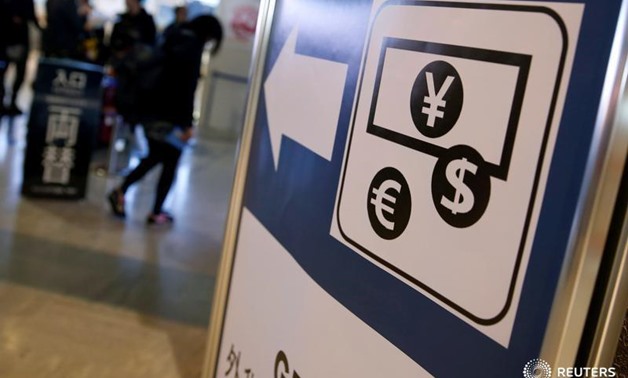
Currency signs of Japanese Yen, Euro and the U.S. dollar are seen on a board outside a currency exchange office at Narita International airport, near Tokyo, Japan, March 25, 2016. REUTERS/Yuya Shino/File Photo
BEIJING - 24 May 2018: China is a long-term and responsible investor in the euro and hopes the currency will be strong and steady, in spite of the occasional sovereign debt crisis in Europe, Premier Li Keqiang said on Thursday.
The euro is set to slump for a sixth consecutive week against the dollar - the longest weekly losing streak since January 2015 - hobbled by worries over an economic slowdown in the currency bloc.
The euro has also been hit by concerns that an incoming coalition Italian government will implement big-spending policies, adding to the country’s large debt.
“The euro is an important choice in our foreign currency reserves, and so we are continuing to buy European debt,” Li said.
“Even when certain European countries had sovereign debt crises, China kept the broader picture in mind.”
The premier said a strong euro benefits the Chinese yuan currency.
“We hope the euro can be strong and steady. We have a large amount of foreign reserves. We believe that foreign exchange reserves can’t just be put in one basket,” he said.
Li’s show of confidence in the euro came as German Chancellor Angela Merkel visited China.
In a joint media appearance with Merkel at Beijing’s Great Hall of the People, Li said China and Germany both upheld global free trade, and stressed the huge potential for cooperation between them.
The euro traded slightly higher at around $1.1700 on Thursday after hitting a six-month low of $1.1676 on Wednesday on a rash of poorer-than-expected economic data out of Germany, France and the broader euro zone.

Comments
Leave a Comment